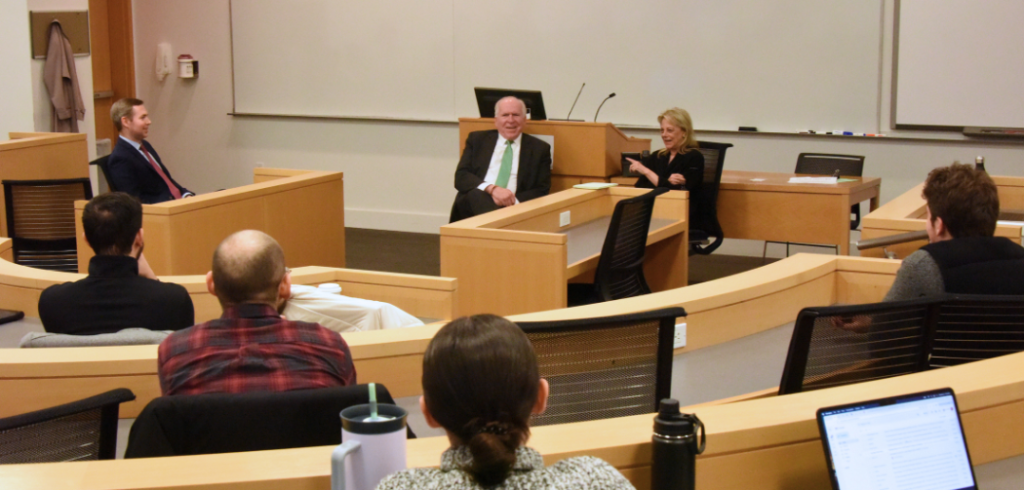As global instability and geopolitical crises—including wars in Europe and the Middle East as well as the displacement of populations and changing migration patterns—continue to make headlines both domestically and abroad, former Director of the Central Intelligence Agency John O. Brennan FCRH ’77 warned that cybersecurity should remain at the forefront.
“A lot of that phenomenon certainly has been around for decades and centuries in terms of geopolitical tensions … but the thing that’s different now, though, is the technological revolution that has been occurring for the past 30 years or so, in terms of how much more interconnected the world is, as a result of the technological advancements particularly in the digital realm,” said Brennan. “Things are happening at almost a dizzying pace now, much different and much faster than it happened back when I first started out [in 1980].”
On April 3, the Center on National Security (CNS) at Fordham Law invited Brennan, current distinguished fellow for global security at CNS, to discuss many global issues ranging from China’s global influence and Russian and Middle Eastern politics to cyber attacks, attribution, and response during an election year.
Brennan reflected on his 2017 testimony before the House Intelligence Committee, which was investigating Russia’s interference in the 2016 U.S. presidential election. Brennan testified that the Trump campaign had contact with Russia, and that he told Russian intelligence officials in 2016 to end their attempts to influence the U.S. election.
“One of the things that we debated as we were getting closer to the election was whether or not we wanted to rattle the Russian’s cyber cage,” he recalled. “We ultimately decided that we were not going to do something on the cyber front because we didn’t want to get into an escalatory spiral with the Russians where they could have, in fact, done some more aggressive things—because we knew that they were actively looking into the architecture of the voting systems in several states.”
When asked by CNS Director Karen Greenberg, who moderated the conversation, if he was worried about outside operatives taking similar steps ahead of the upcoming presidential election, Brennan expressed cautious optimism. He pointed to disinformation and its impact on society, as well as evolving sophisticated attempts that could be made by outside operatives to interfere with and influence the U.S. election, as a means to undermine U.S. global influence.
“I think further steps have been taken since 2016 to safeguard the electoral systems, and states basically own their electoral systems,” said Brennan. “But on the information operations front, I don’t feel good at all because there are all different ways to get things into the social media bloodstream and misrepresent who actually is pushing disinformation out, as a way to hurt candidates that you don’t want.”
The program was presented in conjunction with CNS and the Voting Rights and Democracy Project at Fordham Law.


